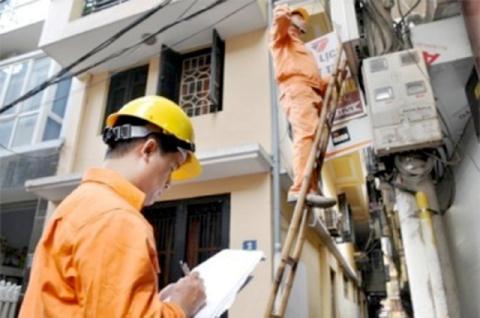|
SOE
staff productivity remains low, salaries high
Managers of state-owned enterprises (SOEs)
complain they receive “starvation wages”, but labor experts say the salaries
are too high compared with their productivity.

Prime Minister Nguyen Tan Dung said at a working
session with the Ministry of Industry and Trade (MOIT) on October 2 that the
power sector’s most serious problem is not the price of electricity, but low
productivity of staff.
Dung asked the Electricity of Vietnam (EVN) to cut
waste in its organization after hearing a report that the average labor
productivity was equal to 10 percent of
EVN’s managers admitted that the labor productivity is
too low. The HCM City Power Corporation, for example, has labor productivity
of 2.9 million kwh per head. Meanwhile, the figure is 2.9 million kwh in
“What are the reasons behind the low productivity, low
qualification of workers, out-of-date technologies, or cumbersome apparatus?”
Dung asked.
Pham Le Thanh, EVN’s general director, said nearly all
operations can be done automatically thanks to modern technologies in other
countries, but they are still done manually in
“EVN, for example, needs a high number of workers in
charge of measuring the electricity usage of households, and collecting money
from users,” Thanh said, adding that this work alone had been assigned to
67,000 workers.
Meanwhile, in other countries, electronic meters are
used to measure usage, and the information is reported automatically to
operation centers which calculate the fees customers have to pay and then
issue bills.
Power companies do not have to send workers to every
household to collect fees, because consumers can pay via banks.
“This is one of the major reasons that causes low
productivity,” Thanh said.
However, he said that EVN has asked all of its
subsidiaries to stop recruiting new workers, promising that EVN will try to
increase labor productivity to a level equal to Malaysia’s and Thailand’s by
2020.
Thanh said that 67,000 workers now undertake the simple
job of recording the electricity usage consumed by households and collecting
money. This number stirred up public debate.
EVN has corrected the information, now saying that
67,000 represented the number of workers in all phases related to electricity
trade and distribution. Recording the electricity consumed and collecting
money are only two phases of the process.
However, EVN said it was still unclear how many workers
are actually doing the job now.
Though admitting low labor productivity, the high rate
of the electricity loss during the transmission process and many other
existing problems, EVN’s managers still receive “unreasonably sky-high
salaries”, which has been criticized by the public.
A report of the Ministry of Industry and Trade about
the wages of 120 managers of 11 state-owned economic groups and general
corporations showed that EVN’s general director Pham Le Thanh received
VND53.43 million a month in 2013.
Pham Huyen,
|
Thứ Sáu, 31 tháng 10, 2014
Đăng ký:
Đăng Nhận xét (Atom)
Không có nhận xét nào:
Đăng nhận xét